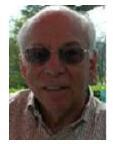
Electricity generated by fossil fuel is a generally stable and low-cost commodity. Globally, electricity is being utilized in more areas of life than ever before, and the environmental impact of its generation is minimized through various technologies. This web forum reviews those technologies for both the researcher as well as the practicing engineer, including generation, non-catalytic and catalytic reduction of NOx, electrostatic precipitation, fabric filtration, desulfurization and acid gas control, and mercury control. Many of these technologies are inter-related, and the focus is on the system as whole. While these unit operations are sufficient for existing electricity generation, future technology development is also be discussed.
Moderator:
 |
Dr. Richard SiegelRichard D. Siegel, Ph.D., is an environmental consultant with over 40 years of experience focused on risk management for a wide variety of chemical, petrochemical pharmaceutical, and government clients. He is President of R & B Consulting Services where he specializes in assisting firms in marketing and selling their EHS&S services. Dick started this company in 2003 after an extensive career working for environmental services organizations with particular focus on air quality related matters. |
Webinar content is available with the kind permission of the author(s) solely for the purpose of furthering AIChE’s mission to educate, inform and improve the practice of professional chemical engineering. The content reflects the views, opinions, and recommendations of the presenters. AIChE does not warrant or represent, expressly or by implication, the correctness or accuracy of the content of the information presented. All other uses are forbidden without the express consent of the author(s). For permission to re-use, please contact chemepermissions@aiche.org. Attendee contact information, including email addresses, will be shared with AIChE, with the option to unsubscribe from future communications.


